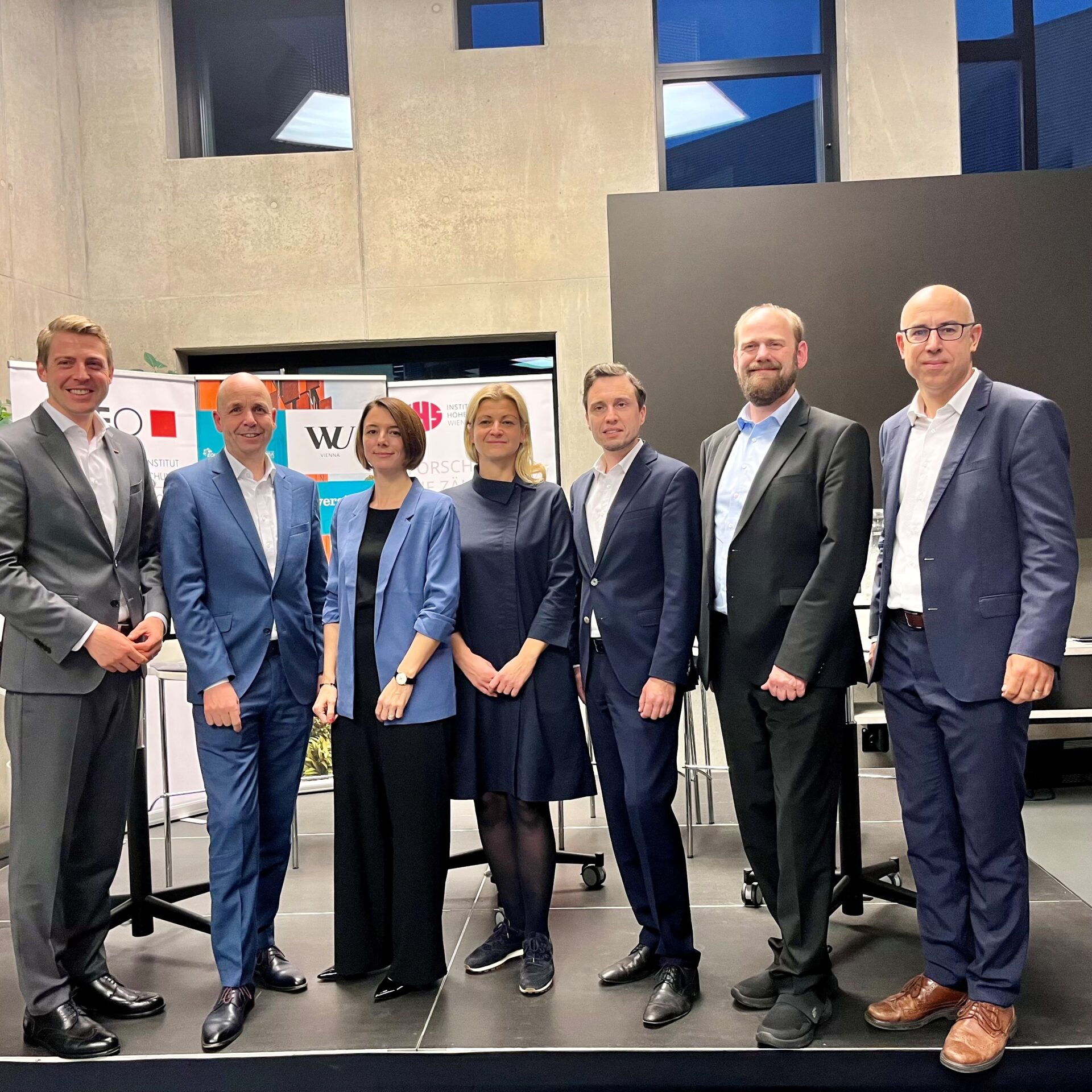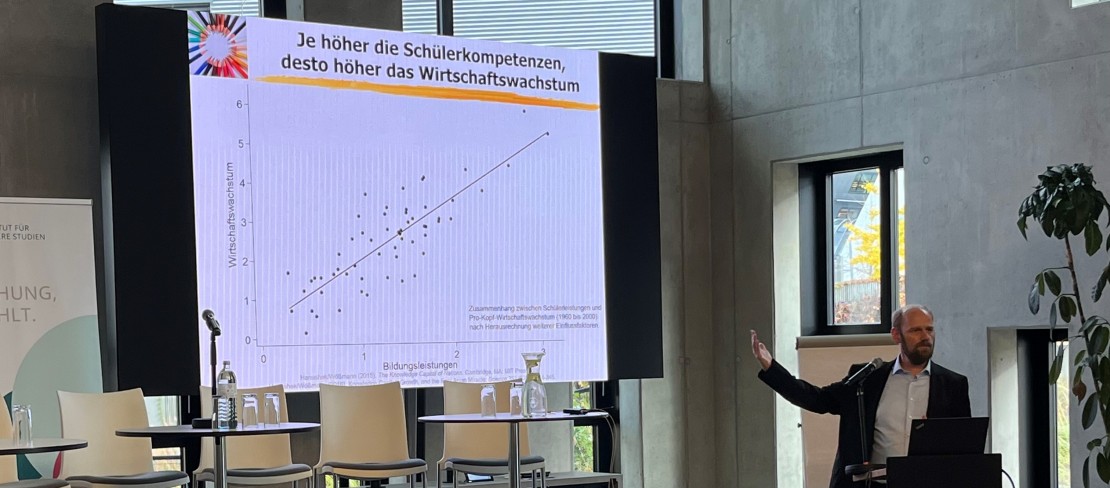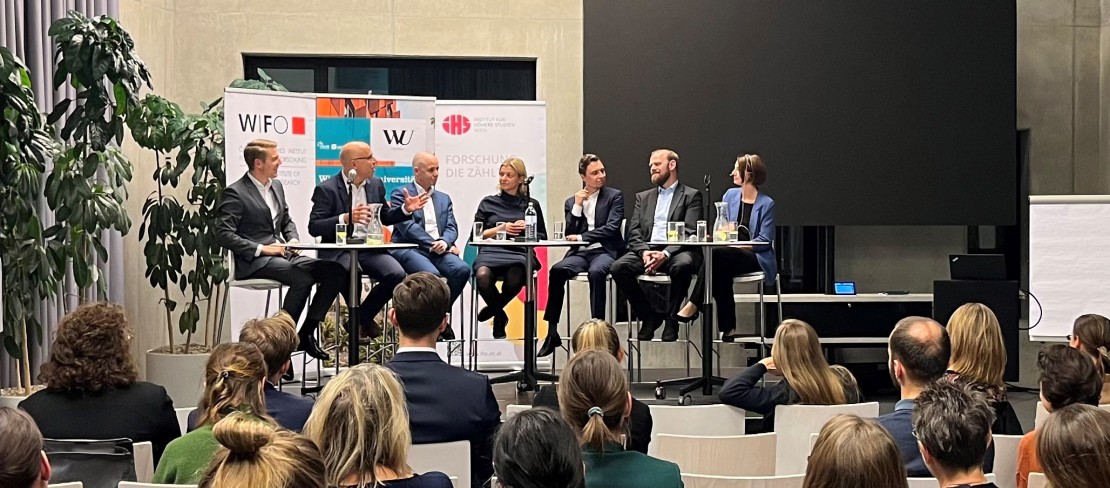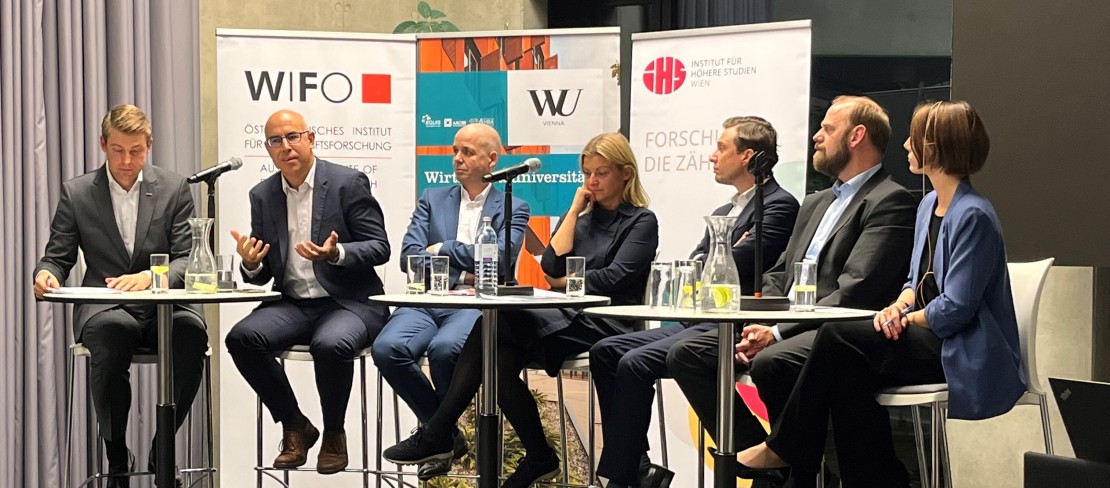
An Education Campaign Against the Shortage of Skilled Workers
Ludger Wößmann, Professor at the LMU and Director of the Center for the Economics of Education at the ifo Institute in Munich, held a keynote speech. Monika Mühlböck (IHS), Michaela Potančoková (IIASA Laxenburg), WIFO economist Martin Spielauer and WIFO economist Ulrike Famira-Mühlberger provided expert contributions on the topic.
In his keynote speech "Education and prosperity: the knowledge capital of nations and how we increase it", Wößmann emphasised the importance of educational achievements. They are not only the "knowledge capital" of nations and the basis of our prosperity, but also have a monetary impact on the individual. Mentoring programs can strongly support disadvantaged young people and further education is important.
 © WIFO
© WIFO
Mühlböck referred to the challenges that can arise when measuring the need for skilled workers in Austria and outlined possible solutions.
Under the title "Future labor supply from a demographic perspective in cross-country comparison: the role of education and migration", Potančoková showed the possibilities of using demographic microsimulation models on the labor market.
In his presentation on "Microsimulation projection of educational integration and labor force participation of second-generation migrants", Spielauer asked how the elimination of differences in educational backgrounds between young people from "2nd generation third countries" and young people without a migration background might affect the labor market and employment.
Famira-Mühlberger focused on the evaluation of educational leave.
 © WIFO
© WIFO
WIFO Director Gabriel Felbermayr, Holger Bonin (IHS), Viktor Fleischer (Federation of Austrian Industries), Philipp Gady (Vice President of the Austrian Chamber of Commerce), Barbara Teiber (Vice President of the Vienna Chamber of Labor, GPA Chairwoman) and Ludger Wößmann took part in the subsequent panel discussion. They discussed about necessary measures and interventions and which players are particularly needed in order to deal with the shortage of skilled workers. Three key factors to counter the shortage of skilled workers were identified: Expanding nationwide childcare (starting with the youngest children), improving the integration of women in the labor market and raising the workforce potential represented by disadvantaged young people.
 © WIFO
© WIFO
Please contact
























